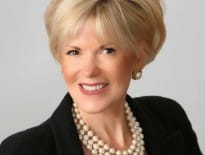A few weeks ago, I had the chance to talk by phone with three of Webster Bank’s leadership team about the Waterbury, Connecticut bank’s upcoming move into Boston. I was talking to them for articles I wrote for Banker & Tradesman (as well as our sister publication, The Commercial Record) primarily about the ROI of mobile banking balanced against the need for physical branches. I figured Webster would fit well into that story because a) they clearly aren’t starved for the money to spend on new technology, but b) they still saw the acquisition of the former Citi branches as critical to breaking into a new market.
But as any reporter can tell you, the full interview seldom makes the final cut. I used what I needed from my interview, but left a lot of interesting stuff lying on the cutting room floor. Since Webster’s move into the Boston market is something of an ongoing story, I figured I ought to share a little bit more of what I’ve learned about it.
Here, I’ve talked with David Miree (EVP, director of consumer deposits and Webster Investment Services), Mike O’Connor (SVP, head of corporate real estate) and Greg Jacobi (SVP, director of distribution and customer experience and internet).
On shipping up to Boston:
David: “We’ve been excited to be in Boston for years now. Back in 2009, we first began our foray into Boston opening a location on Franklin Street. … The plan at that time was to expand our footprint in Boston when the timing was right.”
When Citibank put this news out to the market, he said, that represented an opportunity for Webster to jump into Boston and make a splash – in a much bigger way than they would be able to if they’d just built de novo branches.
On the locations themselves:
Greg: I think one of the good things about those locations is that the network was ready made for the modern consumers. It’s not like they had 30 locations in downtown. They’re good locations where people are and are very convenient but also not so dense that it didn’t make sense.
Mike: The locations themselves from a real estate perspective are excellent Class A locations. They’re all within the 128 loop except for Burlington, which is just a hair outside it, in absolutely excellent locations. We couldn’t replicate the locations en mass in a timely manner if we wanted to without this execution. The banking centers themselves are in great shape so they need very little work.
In essence, we’re making them into Webster banking centers. We’re investing in our marketing, so you’ll see TVs with our branding message and our offerings. … From an infrastructure perspective, these buildings are in great shape. We’ll add to it a little bit but you won’t see a significant overall change.
On scooping up Citi’s bankers:
In addition to picking up those 17 locations, Webster also snagged 54 of the 71 bankers Citi was leaving behind, which Webster considered another egg in its beer.*
David: It was a combination of banking center managers, tellers, personal bankers, a couple former business bankers. It was a mix of positions but mostly on the retail side.
Greg: We know that the changing over of a banking center is disruptive not just to the customers. That’s a lot of people who weren’t really sure what was going to happen to them, and we made it a point very early on to focus on those bankers to make sure we’re doing right by them as well.
David: Which is why I think that the locations were very important, because they’re familiar to folks and they’re ready-made banking centers, but the people who had built relationships in the community. … Not only getting those locations, but also getting the best bankers out of the crop from Citi, was very important, and that’s really helped us build a presence almost immediately.
On shopping locally:
Mike: All the vendors we’re using are Boston contractors. The marketing team is out of Boston as well. We believe in going into the market and utilizing the strengths of the market. Much like it’s critical for us to have these employees who know the market, we prefer to do that with the professionals in the market as well.
*I hadn’t heard this expression until Jim Morrison, our residential real estate reporter, found it when looking up synonyms for “benefit.” (Reporters also love the thesaurus, you should know.) Apparently it dates back to one of the two World Wars, when both eggs and beer were in short supply. My aim here is to reintroduce it (and the two-dollar bill) into common circulation.







